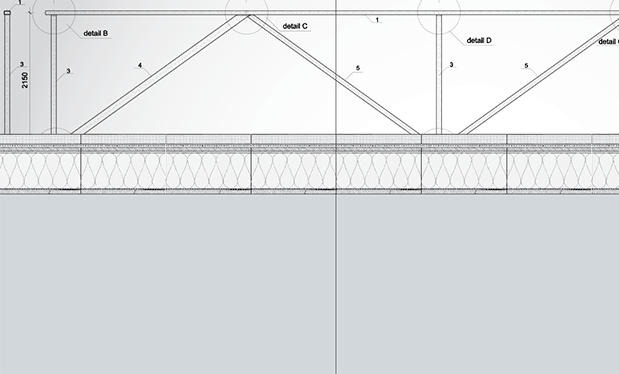
Editor’s note: This article is for general educational purposes only and does not constitute legal advice.
As experienced roofing contractors will tell you, joint ventures can have substantial advantages. Whether you partner for a single project or a longer term, these working arrangements allow you to pool resources and take advantage of the talents each party can offer for larger roofing projects.
For example, perhaps you have a good relationship with a building owner, and another contractor has the financial backing to get a project done. By collaborating, you can share the risks and reap the rewards.
Preparation
A joint venture involves two or more people or entities undertaking a business project for mutual profit. All parties must participate and contribute, and each may have different responsibilities. Before signing a contract, all parties should understand one another’s capabilities and finances. If funding falls through or one party fails to perform, the project can quickly fail.
When entering into such an agreement, it is essential to get all the details in writing. That way, everyone is aware of the expectations and understands how profit and risk will be divided. In addition, you need to make sure the joint-venture contract and applicable construction contract are consistent. Any discrepancies between the two will cause confusion and uncertainty.
Terms and agreements
In every joint venture, all parties must understand certain essential terms and what the agreements entail. For example:
- Ownership interests: Each partner has an ownership interest that outlines how each will share profits and losses. In addition, each partner is liable for the others’ obligations, acts and omissions. Sometimes, partners have equal ownership interests. If they do not, they should each indemnify one another and ensure their risk is comparable to their ownership interests.
- Scope of the venture: The contract should clearly state the scope of the specific project. In addition, the contract should outline that no partner can bid on parts of the project without offering the opportunity to the joint venture first. Also, the contract’s scope should address whether and under what circumstances the partners can pursue other roofing projects outside the joint venture.
- Management decisions: The joint venture contract must designate which party makes decisions about management and operations. Some projects are managed by a committee while others rely on one person. It is critical the contract states these expectations and includes details regarding how management disagreements can be resolved.
- Insurance and bonding: Before entering an agreement, all parties must review all individual liability policies. If any of those policies exclude joint ventures or partnerships, they will need to be revised. Another option is for one partner to provide all insurance and bonding for the project.
- Financial controls: As with other details, the contract should state which party is responsible for managing the project’s finances. It also should indicate where the records will be kept and who can access them. All partners should receive copies of statements and annual audits as well as access to other financial documents upon request. In addition, the agreement should explain what costs can be reimbursable to partners.
- Project personnel: Joint-venture partners must decide whether a project is “populated” or “unpopulated.” If it is populated, the partners hire new employees or transfer some of their existing employees to the project. If it is unpopulated, the partners use their own employees to perform the work and they remain employees of the different partners. The unpopulated option is easier to manage. However, all partners must agree to the employees whether newly hired or existing. In some states, a joint venture must be independently qualified by a licensed contractor, which may require the joint venture maintain certain employees to perform work. Therefore, partners should consult the jurisdiction overseeing the construction of the project before entering into a joint-venture agreement.
- Defaults and disputes: All parties aim to complete the project without significant problems, but a contract should have contingencies. In the case of default by one partner, the others should have the ability to make decisions. Defaults can involve material delays, liquidation or bankruptcy, or failure to make a payment or supply personnel. The contract must include details of the default types and what kind of resolution period is allowed. If defaults or other issues lead to disputes, the contract should contain a provision about conflict resolution, including how and where to choose an arbitrator.

Legal issues
When you enter a joint venture, you may feel confident all plans are in place and your project will be completed on time, on budget and without conflict. In some cases, that will be true! However, there also is a distinct possibility there will be disagreement. One partner may fail to provide finances or adequately perform the scope of work. There may be disputes over project management, scheduling and/or personnel. With these scenarios in mind, it is critical to issue, spot and address concerns in advance of the start of construction.
As discussed, having a detailed contract is one of your best defenses in a joint venture. You also need an attorney who has reviewed the contract and can defend its provisions.
Having one lawyer for the joint venture may seem to be the easiest choice. That attorney can represent all interests and ensure the contract is solid. But what happens in a dispute? One partner easily can claim the attorney is a witness and should be disqualified from representing any of you. An attorney also can be disqualified for having a joint-client relationship with more than one partner. In reviewing such an allegation, the courts will look at emails and other correspondence, meeting attendance and payments made.
For these and other reasons, partners should have separate representation. Perhaps the attorney who wrote the contract will represent only one partner, and the other partner must hire different counsel. An engagement letter should clearly state this arrangement before any contract is signed.
Keep in mind if joint-venture partners are involved in litigation together, for example, against an owner or subcontractor, they must decide which attorney will represent them in that matter. There must be a clear paper trail indicating which counsel is representing whom.
Handling disputes
During any project, partners will face obstacles and have to make multiple decisions. Along the way, they may disagree and argue. When a conflict has no simple solution, partners will need to resort to the dispute-resolution process contained within the joint-venture agreement. From a litigation standpoint, joint ventures are governed the same way as partnerships. Each joint-venture member is expected to treat the others with confidence and trust. Each has a fiduciary duty to one another. And when a partner makes a claim against another, partners may be accused of breach of fiduciary duty.
Fiduciary duty, fraud and rescission
By definition, fiduciaries should not put their interests before another joint-venture member. That means they must be honest and disclose all facts known to them. Failing to make disclosures or offering falsehoods is considered fraud.

Joint ventures are bound by fiduciary trust, which can often be guided by the business judgment rule. This rule basically asserts business managers make the best decisions for their organizations. It implies business decisions are made in good faith and based on sound judgment, and such decisions should not be questioned in the courts. Because the rule is closely related to fiduciary trust, it often is cited in joint-venture disputes. Therefore, if one partner is challenging the decision of another, the accuser must provide evidence the decision was not supported by sound judgment.
Further, if the accused partner is found to have committed fraud or other fraudulent claims, the burden of proof swings back to the accused. That partner then will have to defend the applicable decision as being supported by sound judgment.
If it is determined a contract was based on misrepresentation or fraud, depending on the jurisdiction, it may be rescinded.
In certain cases, rescission of a joint-venture agreement may be acceptable if there is a substantial breach of the contract. It is interesting to note rescission also requires all benefits obtained must be mutually restored. This means all parties are expected to tender back all profits and benefits received from the joint venture. The intent is to avoid unjust enrichment for any of the parties.
Final advice
There are many good reasons to pursue a joint venture. In the construction industry, these arrangements allow people and companies to take advantage of their individual talents and use them for collective success. Without this pooling of resources, some larger roofing projects would be impossible.
However, before entering a joint-venture agreement, engage in sufficient due diligence of your partner and project requirements. Be sure you know what each party brings to the table and carefully craft the joint-venture agreement to reflect your business and legal concerns.
TRENT COTNEY is a partner and practice group leader at the law firm Adams and Reese LLP, Tampa, Fla., and NRCA’s general counsel.


